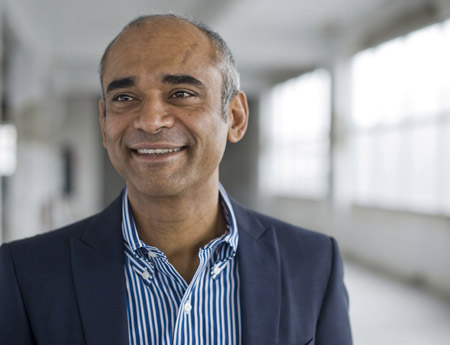Local Broadcasters Unite in Aereo Fight

The smarter way to stay on top of broadcasting and cable industry. Sign up below
You are now subscribed
Your newsletter sign-up was successful
Aereo, with its day in the nation’s highest court looming, is dominating the television business discussion these days, but local broadcasters say it’s not so much Aereo they’re concerned about, but the right to protect their content, period. Multiple station group chiefs say the online TV operator is too small to take a bite out of their business. Yet an Aereo win in the Supreme Court would pave the way for larger operators—the cable, satellite and telco giants—to create and roll out their own versions, and bypass retransmission payments to the broadcasters.
“It’s not Aereo, per se, but what Aereo represents,” says Paul Karpowicz, president of Meredith Local Media. “Someone taking copyrighted material, repackaging it and selling it without consideration for the owner.”
The Taciturn Technologist
Key Aereo backer Barry Diller is a wellknown quantity in the television business, and an outsized personality to boot. Chet Kanojia, Aereo founder and CEO, on the other hand, is as low key as they come. Kanojia dismisses the broadcasters’ concerns, saying Aereo brings broadcast television to a wider audience, thanks to a substantially lower price point than the MSO packages, and increased mobility. “We’re reinvigorating broadcast television for a new generation,” he tells B&C.
Aereo does not provide subscriber figures. A recent launch in Atlanta was marred by capacity issues, as had happened in New York. Next up in the rollout is San Antonio on Feb. 19.
Local broadcast chiefs, like Karpowicz, were somewhat dismissive of Aereo, and more concerned about the bigger issue of copyright protection. “Anyone in local broadcasting has to keep an eye on Aereo to see if it’s a threat,” says one Top 10 market GM who asked not to be named. “But their ability to generate headlines seems to be better than their product.”
Monument-al Decision
The smarter way to stay on top of broadcasting and cable industry. Sign up below
The Supreme Court looks to hear the Aereo case starting April 22. Aereo came up on Sinclair’s earnings call Feb. 12. Even if it were to prevail in court, David Amy, Sinclair executive VP and CFO, said there would be significant legal obstacles for multichannel video programming distributors (MVPDs) intent on deploying its own Aereo-type initiative. “You’re talking years and years before it gets settled,” Amy said, “if it ever did.”
David Bank, managing director, global media equity research, RBC Capital Markets, echoed that thought, writing that existing retrans contracts and the high cost of an MVPD deploying Aereo-like technology, among other things, would largely protect broadcasters.
Marci Ryvicker, managing director at Wells Fargo Securities, notes that Aereo, and the MVPDs, “are beholden to the 1992 Cable Act,” and would therefore continue to cough up the retrans cash. “There is a required obligation to pay retransmission consent as requested by each station group,” she writes.
Karpowicz says he would be “very surprised” if Aereo were to win in court. If it does, he believes broadcasters will petition Congress to better define copyright laws, and Congress would act accordingly, and promptly. “Copyright protection has always been understood and protected and valued,” he says.
Kanojia, meanwhile, says he would rather work with broadcasters than fight them. He chastises broadcasters for opposing the advent of cable TV, the VCR, TiVo and now Aereo. “Litigation is not the answer,” he says. “Technological innovation is the answer.”
WJZY Charlotte: A Clean Slate and a Bunch of Swiss Army Knives
Local TV chiefs constantly talk about overhauling local news, but very few do it. Put Karen Adams, VP and general manager at new Fox O&O WJZY Charlotte on the short list. “My Fox Carolinas” debuted a 10 p.m. news on Jan. 1, and will add a four-hour morning show and an hour at 6 p.m. in the spring. The newscast does not feature traditional anchors (“senior digital journalists” quarterback the programs), and iPhones and lightweight JVC 650 cams take the place of microwave and satellite trucks. Around 75% of the staff is out in the field, gathering news. “Everyone has to be a Swiss Army knife,” says Adams.
Time will tell if WJZY cuts through the media clutter. “Some people shake their heads and say, ‘that’s not the way it’s been done the last 30 years,’” says Geoff Roth, VP of content for the station.
“That’s what we want,” adds Adams.
Michael Malone is content director at B+C and Multichannel News. He joined B+C in 2005 and has covered network programming, including entertainment, news and sports on broadcast, cable and streaming; and local broadcast television, including writing the "Local News Close-Up" market profiles. He also hosted the podcasts "Busted Pilot" and "Series Business." His journalism has also appeared in The New York Times, The L.A. Times, The Boston Globe and New York magazine.

